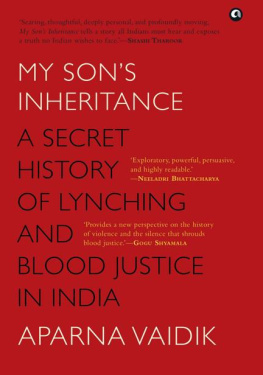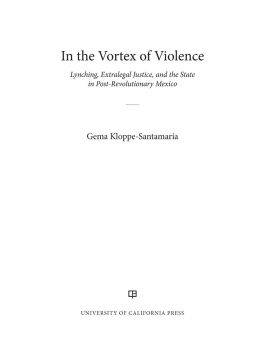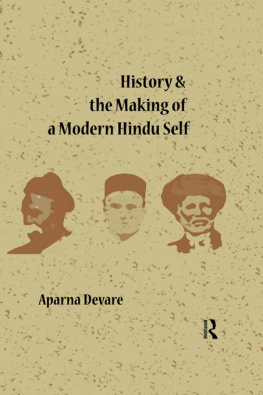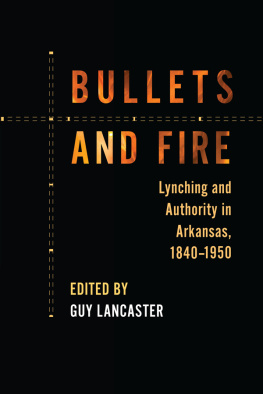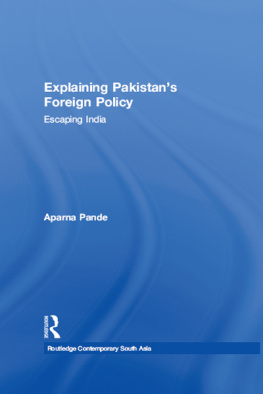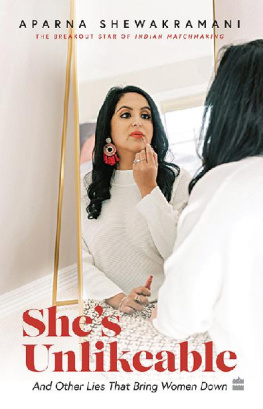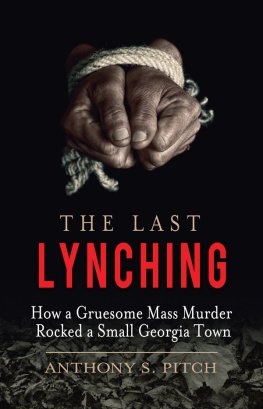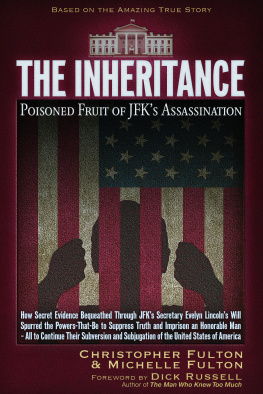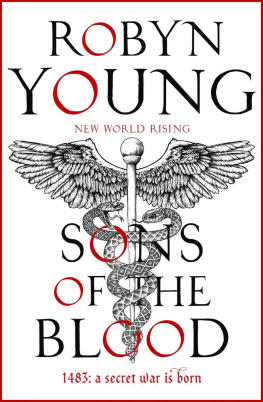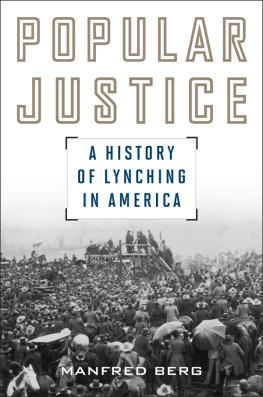Aparna Vaidik - My Sons Inheritance: A Secret History of Lynching and Blood Justice in India
Here you can read online Aparna Vaidik - My Sons Inheritance: A Secret History of Lynching and Blood Justice in India full text of the book (entire story) in english for free. Download pdf and epub, get meaning, cover and reviews about this ebook. year: 2020, publisher: Aleph Book Company, genre: Religion. Description of the work, (preface) as well as reviews are available. Best literature library LitArk.com created for fans of good reading and offers a wide selection of genres:
Romance novel
Science fiction
Adventure
Detective
Science
History
Home and family
Prose
Art
Politics
Computer
Non-fiction
Religion
Business
Children
Humor
Choose a favorite category and find really read worthwhile books. Enjoy immersion in the world of imagination, feel the emotions of the characters or learn something new for yourself, make an fascinating discovery.
- Book:My Sons Inheritance: A Secret History of Lynching and Blood Justice in India
- Author:
- Publisher:Aleph Book Company
- Genre:
- Year:2020
- Rating:3 / 5
- Favourites:Add to favourites
- Your mark:
- 60
- 1
- 2
- 3
- 4
- 5
My Sons Inheritance: A Secret History of Lynching and Blood Justice in India: summary, description and annotation
We offer to read an annotation, description, summary or preface (depends on what the author of the book "My Sons Inheritance: A Secret History of Lynching and Blood Justice in India" wrote himself). If you haven't found the necessary information about the book — write in the comments, we will try to find it.
Aparna Vaidik: author's other books
Who wrote My Sons Inheritance: A Secret History of Lynching and Blood Justice in India? Find out the surname, the name of the author of the book and a list of all author's works by series.
My Sons Inheritance: A Secret History of Lynching and Blood Justice in India — read online for free the complete book (whole text) full work
Below is the text of the book, divided by pages. System saving the place of the last page read, allows you to conveniently read the book "My Sons Inheritance: A Secret History of Lynching and Blood Justice in India" online for free, without having to search again every time where you left off. Put a bookmark, and you can go to the page where you finished reading at any time.
Font size:
Interval:
Bookmark:
MY SONS INHERITANCE


ALEPH BOOK COMPANY
An independent publishing firm
promoted by Rupa Publications India
First published in India in 2020
by Aleph Book Company
7/16 Ansari Road, Daryaganj
New Delhi 110 002
Copyright Aparna Vaidik 2020
All rights reserved.
The author has asserted her moral rights.
The views and opinions expressed in this book are the authors own and the facts are as reported by her, which have been verified to the extent possible, and the publishers are not in any way liable for the same.
The publisher has used its best endeavours to ensure that URLs for external websites referred to in this book are correct and active at the time of going to press. However, the publisher has no responsibility for the websites and can make no guarantee that a site will remain live or that the content is or will remain appropriate.
No part of this publication may be reproduced, transmitted, or stored in a retrieval system, in any form or by any means, without permission in writing from Aleph Book Company.
ISBN: 978-81-942337-8-7
1 3 5 7 9 10 8 6 4 2
This book is sold subject to the condition that it shall not, by way of trade or otherwise, be lent, resold, hired out, or otherwise circulated without the publishers prior consent in any form of binding or cover other than that in which it is published.
Dedicated to
Babaji, my late grandfather,
known to everyone as Bhaiyyaji
CONTENTS
PROLOGUE
One morning, your father and I, out on our daily walk, heard sounds coming from the open area beyond the fenced boundary wall.other side of the graveyard. With time, the colony gate was locked and boarded up, cutting off that world from ours. I was not sure whether this had happened at the behest of the Waqf board that controlled the graveyard land or the middle-class denizens on our side of the wall.
We were walking on a narrow lane that hugged our side of the boundary wall. We had a partial view of the open space through the potted plants sitting atop the wall and the vines draping the fence. Peering through the foliage, we saw a large number of men dressed in crisp kurta-pyjamas and skullcaps sitting on the ground on sheets and mats. It was Bakra Eid and the faithful had gathered for the khutbah, the address before the namaz. We could not see the speaker, a maulana from a nearby mosque, as we were behind the stage which was covered with a small white tent. Large speakers were installed on either side of the stage and the sound of the maulanas voice, along with the sweet smell of itr, wafted across to us. The maulana urged the young men to remember that Bakra Eid symbolized qurbani, sacrifice. It was a day, he said, when they should recall the sacrifices their ancestors made towards the struggle for Indias independence starting with the Battle of Plassey in 1757 and the role Siraj-ud-daulah played in it: Apne bade-buzurgon ki jang-i-azadi mein qurbani nahi bhulein. Also remember the Revolt of 1857 when there was no tree where the dead bodies of Muslims were not hanging: Koi aisa ped nahi tha jahan mussalmano ki laashein tangi nahi thi. India was their home: Ye desh aapka mulk hai. They should not forget their history. Apni tareekh na bhulein and fall for distorted versions that were being presented to them. He told them that they should also be willing to make sacrifices for their country: Apne mulk ke liye qurbani dene ke liye tayyar rahein. The maulana then urged them to practise charity and to give portions of their food and money to the needy.
Your father and I walked along the boundary wall entranced by the speech and the sight of the faithful intently listening. You trailed us on your bicycle. Your father and I usually preferred a nearby park for our morning walk, not wishing to meet and chat with our kindly neighbours at this early hour, but wed woken up late that morning and decided to do a few quick rounds inside the colony instead. Perhaps because it was late or maybe because of the loudspeakers there were fewer walkers that morning. Just then we were stopped by a friendly octogenarian who conspiratorially whispered in my ear: Inhone ye speakers jaan boojh kar hamari taraf lagaye hain. These people, he said, had deliberately turned their loudspeakers towards us. The sermon was being given for our benefit. Ye sab hamare liye kaha ja raha hai. He switched to English. Can you believe these people actually call themselves a civilization? Look at them masquerading as scholars claiming that they fought for Indias independence. A part of me wanted to walk away but your father stood there transfixed. The gentleman continued, I am from the Northwest Frontier Province. I know their reality better than anyone. They are all bigots and fascists. He blamed Nehru and his government for the Partition violence and for emboldening the Muslims. Look around Delhi, all the Partition refugee colonies are named Rajinder Nagar, Malviya Nagar and Patel Nagar, never Nehru Nagar. You see. He was referring to the residential neighbourhoods of the Hindu refugees, who came to Delhi in the wake of the countrys Partition in 1947, that were named after right-leaning national leaders. The neighbour claimed he had read the statement that Nathuram Godse gave during Gandhis murder trial and he understood what must have driven that man to kill: Mai samajh sakta hoon ke usne kyon mara hoga. By this time you had waited long enough and started tinkling your cycle bell, interrupting the gentlemans monologue and giving us a chance to get away. I was a tad annoyed with your father as we resumed our walk. Why did you keep standing there and listening? Itni der mein hamara ek round aur ho jata. We could have walked another round in that time. He shrugged his shoulders: Oh! I was just being polite. We walked home in brooding silence. I felt sad and uneasy.
The morning chores awaited us. I made my way into the kitchen and your father got busy with loading the washing machine and soaking your school shirts in the whitener. As I was preparing breakfast, a vivid memory of a silent protest I had seen on TV a few months ago came to me. It was an event that was organized to protest and grieve the spate of lynchings in the country. Some people in the crowd were holding candles, with wax slowly dripping on their fingers and singeing them lightly. Some held banners painted with bold slogans. Others stood in groups and chatted. Some were smoking. Night had fallen. It was a silent protest. The air simmered with anger, outrage, shock, and grief. I spotted several people I knew in that crowd, my associates, neighbours, and people I had met at different times in my life. There were also celebrities, social activists, and political commentators. News reporters mingled in the crowd gathering sound bites. The noise of the traffic whizzing by was audible over the microphone. A woman with pepper-grey hair, a big black bindi, and kohl-lined, eyes claimed: Indias essence is under attack. India does not stand for violence. A man claimed in a deep baritone: India is the land of Buddha and Gandhi watered by the calming waters of the Ganga. A land purified by the teachings of the Bhakti saints. The cradle of GangaJamuni sanskriti.
India, in his view, was an ocean formed by diverse human rivulets merging into it. He was claiming that the land of non-violence and tolerance was being overrun by violence and that Indian history was being bent out of shape. I remembered having the same uneasy feeling watching that programme as I did now.
Next pageFont size:
Interval:
Bookmark:
Similar books «My Sons Inheritance: A Secret History of Lynching and Blood Justice in India»
Look at similar books to My Sons Inheritance: A Secret History of Lynching and Blood Justice in India. We have selected literature similar in name and meaning in the hope of providing readers with more options to find new, interesting, not yet read works.
Discussion, reviews of the book My Sons Inheritance: A Secret History of Lynching and Blood Justice in India and just readers' own opinions. Leave your comments, write what you think about the work, its meaning or the main characters. Specify what exactly you liked and what you didn't like, and why you think so.

